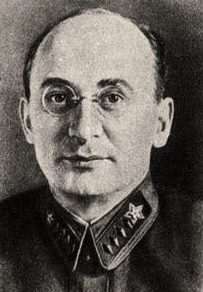
Lavrentiy Pavlovich Beria was a Georgian Bolshevik and Soviet politician, Marshal of the Soviet Union and its state security administrator and chief, and chief of the People's Commissariat for Internal Affairs (NKVD) under Joseph Stalin during the Second World War, and promoted to deputy premier under Stalin in 1941. He officially joined the Politburo in 1946. Beria was the longest-serving and most influential and brutal of Stalin's secret police chiefs, wielding his most substantial influence during and after the war. Following the Soviet invasion of Poland in 1939, he was responsible for organising purges such as the Katyn massacre of 22,000 Polish officers and officials.

Nikita Sergeyevich Khrushchev was First Secretary of the Communist Party of the Soviet Union from 1953 to 1964, and Chairman of the Council of Ministers (premier) from 1958 to 1964. During his rule, Khrushchev stunned the communist world with his denunciation of his predecessor Joseph Stalin's crimes and embarked on a policy of de-Stalinization with his key ally Anastas Mikoyan. He sponsored the early Soviet space program and the enactment of moderate reforms in domestic policy. After some false starts, and a narrowly avoided nuclear war over Cuba, he conducted successful negotiations with the United States to reduce Cold War tensions. In 1964, the Kremlin leadership stripped him of power, replacing him with Leonid Brezhnev as First Secretary & Alexei Kosygin as Premier.

Vyacheslav Mikhaylovich Molotov was a Russian and later Soviet politician and diplomat, an Old Bolshevik, and a leading figure in the Soviet government from the 1920s onward. He served as Chairman of the Council of People's Commissars from 1930 to 1941 and as Minister of Foreign Affairs from 1939 to 1949 and from 1953 to 1956. He is considered to be one of the greatest diplomats in history.

In the USSR, during the eleven-year period from the death of Joseph Stalin (1953) to the political ouster of Nikita Khrushchev (1964), the national politics were dominated by the Cold War, including the U.S.–USSR struggle for the global spread of their respective socio-economic systems and ideology, and the defense of hegemonic spheres of influence. Since the mid-1950s, despite the Communist Party of the Soviet Union (CPSU) having disowned Stalinism, the political culture of Stalinism — a very powerful General Secretary of the CPSU—remained in place, albeit weakened.
The "doctors' plot" was a Soviet state-sponsored antisemitic campaign and conspiracy theory that alleged a cabal of prominent medical specialists, predominantly of Jewish ethnicity, intended to murder leading government and party officials. It was also known as the case of saboteur doctors or killer doctors. In 1951–1953, a group of mostly Jewish doctors from Moscow were accused of a conspiracy to assassinate Soviet leaders. This was later accompanied by publications of antisemitic character in the media which talked about the threats of Zionism and condemned people with Jewish surnames. Following this, many doctors, both Jews and non-Jews, were dismissed from their jobs, arrested, and tortured to produce admissions. A few weeks after Stalin's death in 1953, the new Soviet leadership said there was a lack of evidence regarding the doctors' plot and the case was dropped. Soon after, the case was declared to have been a fabrication.

The Anti-Party Group, fully referenced in the Soviet political parlance as "the anti-Party group of Malenkov, Kaganovich, Molotov and Shepilov, who joined them" was a Stalinist group within the leadership of the Communist Party of the Soviet Union that unsuccessfully attempted to depose Nikita Khrushchev as First Secretary of the Party in June 1957. The group, given that epithet by Khrushchev, was led by former Premiers Georgy Malenkov and Vyacheslav Molotov and former First Deputy Premier Lazar Kaganovich. The group rejected both Khrushchev's liberalization of Soviet society and his denunciation of Joseph Stalin, and promoted the full restoration and preservation of Stalinism.
Red Monarch is a 1983 British television film, starring Colin Blakely as Joseph Stalin. It is directed by Jack Gold and features David Suchet as Lavrentiy Beria and David Threlfall as Stalin's son Vasily.

Alexander Nikolaevich Poskrebyshev was a Soviet politician and a state and Communist Party functionary. A member of the Communist Party of the Soviet Union since March 1917, he was chief of the special department of the Central Committee of the Communist Party.
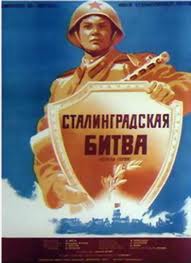
The Battle of Stalingrad is a 1949 two-part Soviet war film about the Battle of Stalingrad, directed by Vladimir Petrov. The script was written by Nikolai Virta.
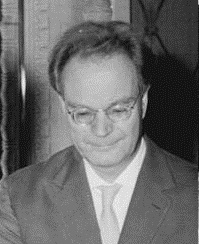
Mikhail Georgiyevich Pervukhin was a Soviet official during the Stalin Era and Khrushchev Era. He served as a First Deputy Chairman of the Council of Ministers, literally First Vice-Premier of the Soviet Union, from 1955 to 1957.

Georgy Maximilianovich Malenkov was a Soviet politician who briefly succeeded Joseph Stalin as the leader of the Soviet Union. However, at the insistence of the rest of the Presidium, he relinquished control over the party apparatus in exchange for remaining Premier and first among equals within the Soviet collective leadership. He then became embroiled in a power struggle with Nikita Khrushchev that culminated in his removal from the premiership in 1955 as well as the Presidium in 1957.

Nikolai Alexandrovich Bulganin was the Premier of the Soviet Union from 1955 to 1958. He also served as Minister of Defense, following service in the Red Army during World War II.
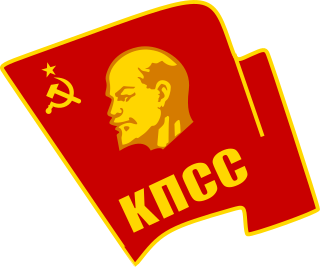
The Central Committee of the Communist Party of the Soviet Union was the highest organ of the Communist Party of the Soviet Union between two congresses. According to party statutes, the committee directed all party and governmental activities. The Party Congress elected its members.
The Nineteenth Congress of the Communist Party of the Soviet Union was held from 5 to 14 October 1952. It was the first party congress since before World War II and the last under Joseph Stalin's leadership. It was attended by many dignitaries from foreign Communist parties, including Liu Shaoqi from China. At this Congress, Stalin gave the last public speech of his life. The 19th Central Committee was elected at the congress.

The Death of Stalin is a 2017 political satire black comedy film written and directed by Armando Iannucci and co-written by David Schneider and Ian Martin with Peter Fellows. Based on the French graphic novel La Mort de Staline (2010–2012), the film depicts the internal social and political power struggle among the members of Council of Ministers following the death of Soviet leader Joseph Stalin in 1953. The French-British-Belgian co-production stars an ensemble cast that includes Steve Buscemi, Simon Russell Beale, Paddy Considine, Rupert Friend, Jason Isaacs, Olga Kurylenko, Michael Palin, Andrea Riseborough, Dermot Crowley, Paul Chahidi, Adrian McLoughlin, Paul Whitehouse, and Jeffrey Tambor.
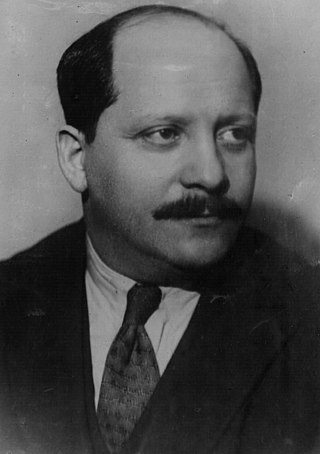
Mikhail Moiseyevich Kaganovich was a Soviet politician. He was the older brother of Lazar Kaganovich. He was born in Kiev Governorate. A metal worker, Kaganovich joined the Bolsheviks in 1905 and fought with the Red Army during the Russian Civil War. In 1923-27, he was based in Nizhny Novgorod, working on economic management. He was transferred to Moscow in 1927.

Joseph Stalin, second leader of the Soviet Union, died on 5 March 1953 at his Kuntsevo Dacha after suffering a stroke, at age 74. He was given a state funeral in Moscow on 9 March, with four days of national mourning declared. On the day of the funeral, hundreds or thousands of Soviet citizens visiting the capital to pay their respects died in a human crush.
La Mort de Staline is a series of French satirical-biographical graphic novels. The two volumes were created by artist Thierry Robin and writer Fabien Nury, and published in October 2010 and May 2012 by Dargaud.
The 1958 Sylvania Television Awards were presented on January 22, 1959, at the Plaza Hotel in New York City. The Sylvania Awards were established by Sylvania Electric Products.

Nikolai Aleksandrovich Mikhailov was a Soviet politician, journalist, diplomat, Komsomol and Communist Party official.















